Google Ads For Real Estate: 6 Tips To Get More Listings & Sales
You’ve got the listing, you’ve got the photos, and you’ve even got a killer story about how the sellers raised their kids in that house. But if no one ever sees your listings, you’ll never get any buyers.
Enter Google Ads for real estate.
Whether you’re trying to generate more leads or sell more homes, Google’s pay-per-click ads are an invaluable tool for real estate marketing.
If you’re in real estate, Google Ads can be one of the best ways to get your listings in front of the right people. But the platform has a lot of quirks and challenges, and it takes some finesse to get it right.
Here are six tips to help you make Google Ads work for your real estate business.
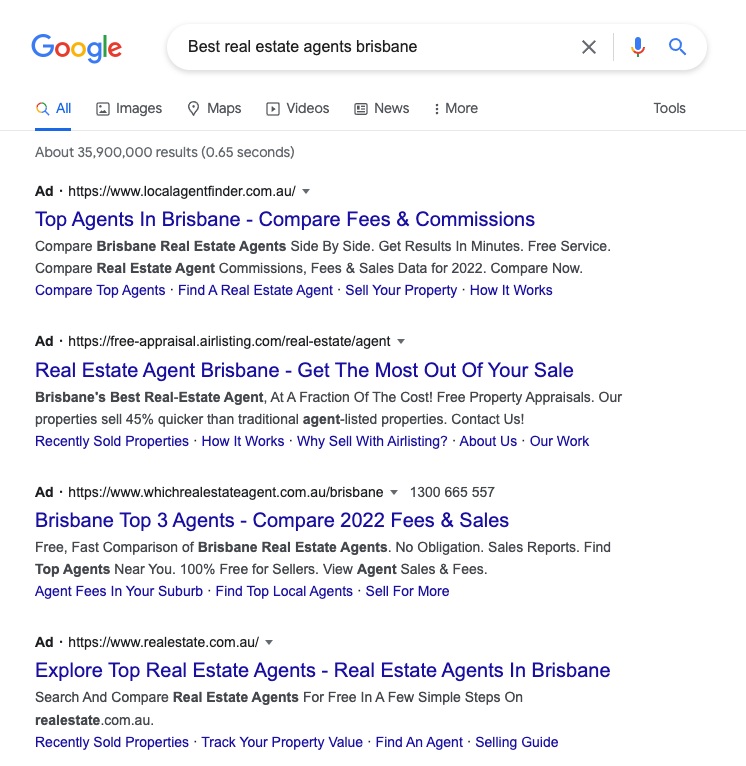

The Benefits Of Google Ads For Real Estate Agents
If you’re a real estate agent, there’s no reason not to be using Google Ads. This powerful platform can help you increase visibility, get more sales, and build your reputation—all while spending less than you would on traditional marketing methods. When you advertise with Google Ads, you’ll be able to:
- Use interactive images and videos to highlight properties
- Track leads in real time
- Easily target specific demographics/audiences
Google Ads gives you the power to target the right people with the right ad at the right time. You can do this by making sure people who are searching for a real estate agent in your area see your ad. You can also show ads to people who have recently searched for real estate-related terms on Google (like “mortgage calculator”).
You can even use Google Ads to re-engage with people who have visited your website before but didn’t convert because they weren’t quite ready yet by showing them ads as they browse the web or search for other terms related to real estate. And Google makes it easy: all of these targeting options are available with just a few clicks of your mouse! Let’s dive in!
- Increase Visibility: With Google Ads, you can make sure that your website will be among the top search results. This will significantly increase the chances of people finding you while they search for the services you offer. Additionally, when potential users see your ads repeatedly, they will remember your brand and become more familiar with it.
- Get More Sales: When people see that your ad is always among the top results, they will start associating your brand with quality and reliability. This means that when they need someone who offers real estate services, they will think about you first. When people see your brand name frequently, they will assume that other people trust you too and that this trust is justified by quality products or services.
- Build Your Reputation: Online reputation is really important for any kind of business these days. Potential clients do not only look at the quality of the work or professional portfolio
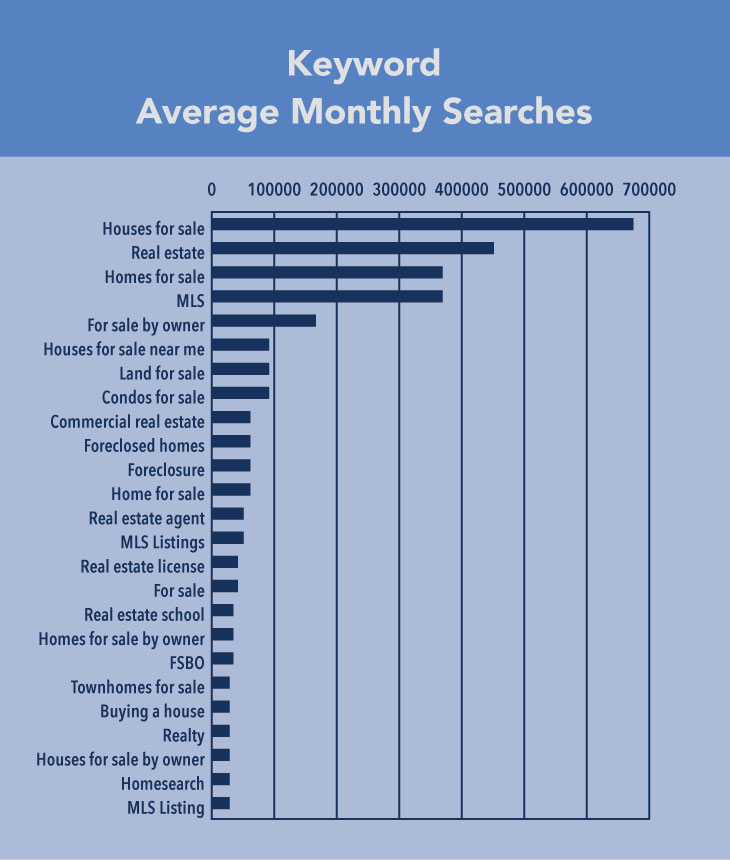

#1 Google Ads Tip For Real Estate Agents: Choose The Right Keywords
The first step is to consider your audience: are you looking for people who are buying houses, or people who are selling houses?
Picking the right keywords for your niche is important. Your chosen keywords will determine how visible your ads are to potential clients.
Think about your audience: The first thing to consider is your audience. Who are they? What kind of property are they looking for? What are their other interests?
It’s really important that you select groups of people who are at different stages of the real estate process. For example, someone trying to sell their house is going to look for different keywords than someone looking to buy a house.
Property specific keywords: You should also choose keywords based on property type. For example, if you specialise in contemporary and luxury properties, then keywords such as “luxury homes for sale” or “contemporary apartments for sale” could be good keywords for you.
Use long tail keywords: Short-tail keywords are broad, and tend to have high search volume but low conversion rates. An example of a short-tail keyword would be “real estate agent” or “real estate broker.” Long-tail keywords are more specific and tend to have lower search volume and higher conversion rates. Examples include “Best residential real estate agents near Bondi” or “commercial real estate agents in North Sydney”
Tools like Google Keyword Planner will help you discover new keywords that are most relevant to your business.
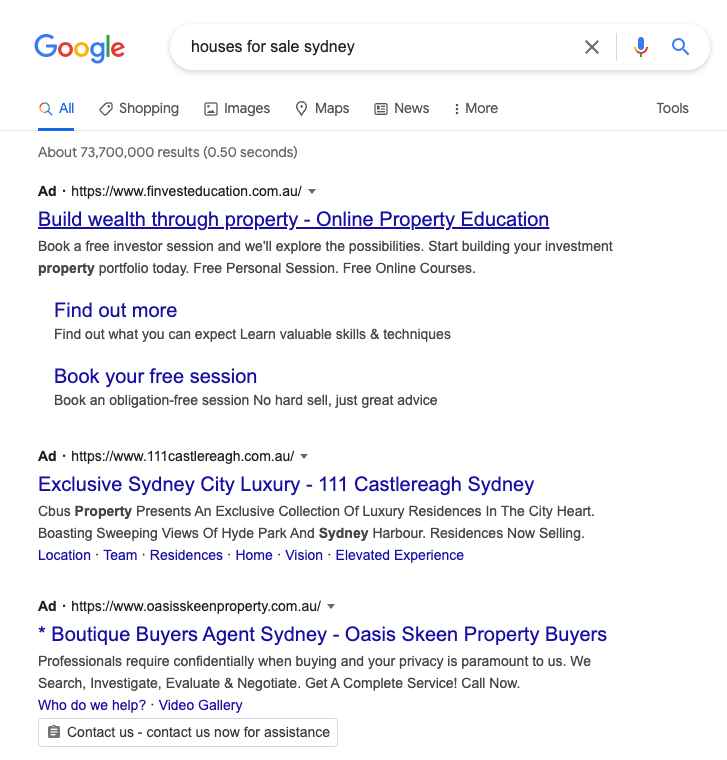

#2 Google Ads Tip For Real Estate Agents: Competitor Bidding
If you’re in a competitive niche, there’s no better way to capture your competitors’ customers then bidding on their brand names in Google Ads. It’s a tried-and-true technique that works like gangbusters.
A competitor bid is an ad that specifically targets competitors’ search terms. It often looks similar to, or even identical to, the original company’s website, but with prominent links leading back to your own site. This tactic has become increasingly common as more and more brands try their hand at paid ads on Google.
A surprising number of advertisers don’t take advantage of this opportunity. It’s a strategy that can be surprisingly effective, but it does require some finesse.
See more: trademarks in Google Ads
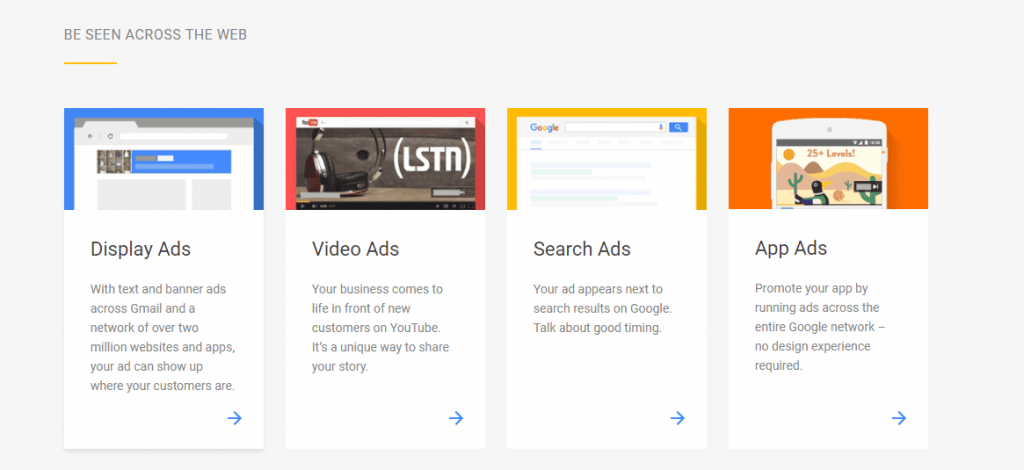

#3 Google Ads Tip For Real Estate Agents: Choose The Right Ad Types
Google offers many different ad types, and it is incredibly important to choose the right ones for your business.
The six main types are search, display, shopping, video, universal app, and Gmail. Let’s look at each one in more detail so you can decide which will help you achieve your goals.
Responsive Text Ads: Responsive text ads automatically optimise themselves based on what audience they’re shown to. They allow you to include multiple headlines and descriptions, which get combined in a way that makes the most sense for each audience member’s search query. These ads are designed to make the most of screen space, so they’re great for mobile users.
Display Ads: Google display ads use images and text to target potential customers as they browse websites or apps in the Google Display Network. This network includes over 2 million sites, reaching 90% of all internet users worldwide. You can craft a display ad using an image that fits with your brand identity and links back to a landing page with more information about what you do or a way for people to schedule a free consultation with you. Display ads are especially useful when it comes to reaching new customers but also work well as part of a retargeting strategy.
YouTube video ads: These are very similar to display ads—they’re visual, they can include images or videos in addition to text, and they aren’t typically used for generating direct sales or leads but rather for increasing awareness about your brand. The major difference between display ads and YouTube video ads is where they appear; YouTube video ads are shown on YouTube pages, while display ads can be shown on any web page
Shopping Ads: Shopping ads provide information about the products your business offers by showing an image of the product, its name and price, a link to your website where customers can purchase the product, and additional information like customer rating or promotions. If you have an ecommerce store or have products available for sale through a third-party marketplace like Amazon or eBay, shopping ads
Gmail Ads: Gmail ads show up in a special tab within someone’s Gmail account when they open their email. These ads differ from other types of display ads because the viewer is already engaged with the content of the ad they’re in their inbox! The point of these ads isn’t necessarily to drive immediate sales it’s more about staying top-of-mind and reminding people that you exist.
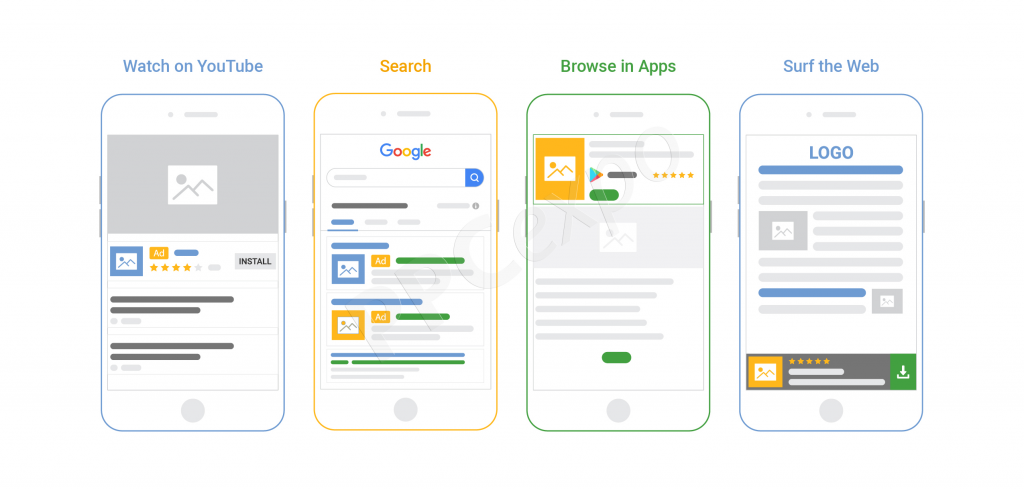

#4 Google Ads Tip For Real Estate: Setup Conversion Tracking
If you’re running Google Ads and not tracking conversions, you’re throwing your money away.
Conversion tracking is the only way to know if your ads are working. Without it, all you can do is guess. You need to know what’s happening after people click on your ad so you can make informed decisions about how to improve your results. And without conversion tracking, you won’t have any of that information!
By default, Google Ads only tracks clicks and impressions. That’s not enough information to know if your ads are successful! When you track conversions, Google Ads can show you which ads are bringing people to your site who actually convert instead of just clicking through and leaving right away so you can optimise your ad campaigns based on what actually works for your business.
There are many different types of conversions: sales, email sign-ups, phone calls, and more. You can track all these things with Google Ads and see how well each ad campaign is performing for each type of conversion. If one campaign isn’t getting as many sales as another, then maybe it needs some tweaking before investing more money into it.
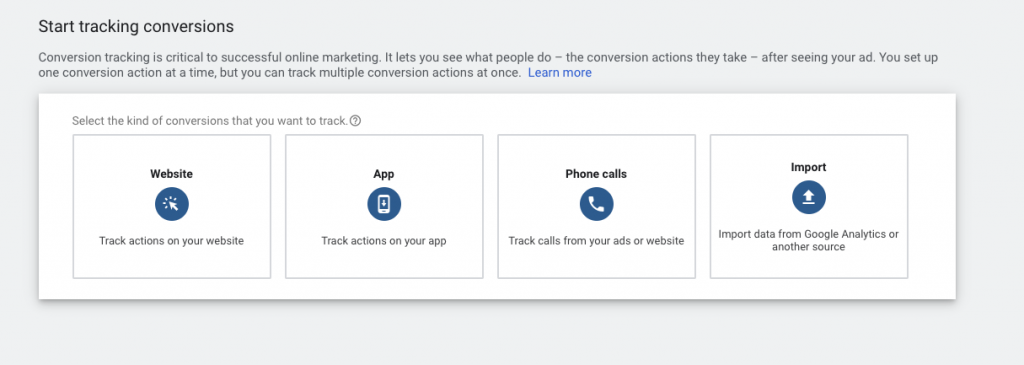

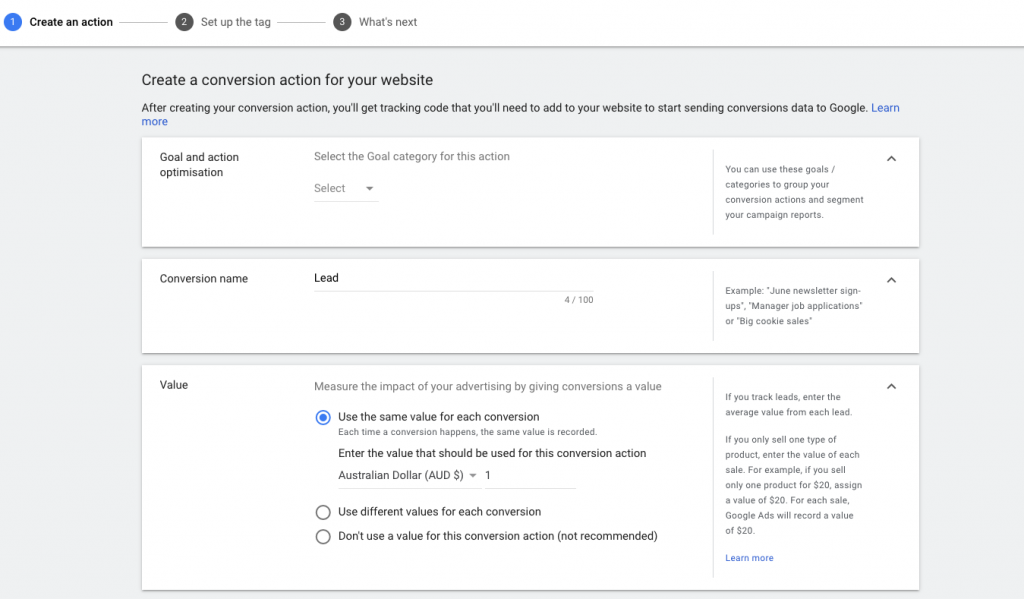

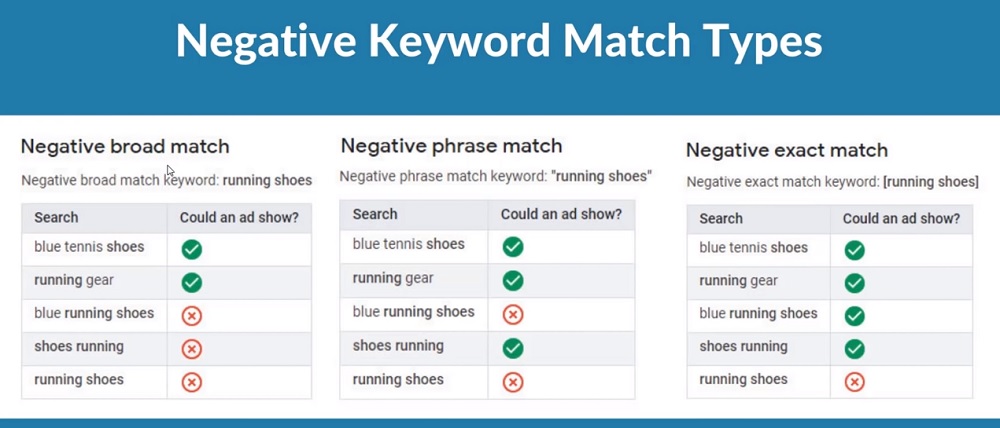

#5 Google Ads Tip For Real Estate: Use Negative Keywords To Eliminate Waste
Negative keywords are a powerful tool for Google Ads.
They allow you to exclude words and phrases that you don’t want to trigger your ad. This prevents your ad from showing up at the wrong time, which is important because every click of an ad costs money. It also prevents your ad from showing up in front of someone who probably won’t convert, which means it won’t work as well for you.
Negative keywords can be used to prevent your ads from showing up for searches that are too broad or too narrow for the product or service you sell, phrases that people might search for when they’re not ready to buy, or even searches related to products that are similar but not identical to yours.
It’s important to review the incoming search queries and add negative keywords to your campaign to prevent wasting budget on irrelevant searches.


#6 Google Ads Tip For Real Estate: Optimise Your Landing Pages
For your company to succeed in Google Ads, you must put your ads on the highest-quality landing pages that can convert visitors into customers. It’s a simple concept, but one that many marketers overlook or simply don’t know how to do.
So what makes a landing page effective? An effective landing page is one that provides relevant information about what the user was searching for in the first place—in other words, it’s an extension of the ad itself. That way, users can continue exploring the topic they were initially interested in without having to navigate away from your site.
- Use a clear and prominent call to action: Make sure there is a clear path for users to take. Your call-to-action button should stand out from the rest of the page, and it should be obvious what happens when someone clicks it (e.g., “Enquire Now”).
- Relevant content: The content on your landing page should reflect the ads you’re running. If your ad is about buying houses, don’t link to a page that’s all about houses for rent. People will get confused and bounce from your site.
- Use high-quality images: It’s not just the image quality, though—it’s also the relevance of the image to your content. Choose an image that will illustrate the reason people clicked on your ad so that they know they’ve arrived at the right place.
- Make sure it loads quickly: Nothing turns off potential customers faster than a slow loading page, so you want to make sure that yours is optimised for speedy loading and that it loads fast on both desktop and mobile devices.


Google Ads For Real Estate Requires A Specialised Approach
Running Google Ads for real estate can be a tricky task, requiring a great deal of care and attention. While the benefits may seem obvious—who doesn’t want their business at the top of the page?—there is more to consider than meets the eye. Real estate agents have to tread carefully, because there are laws and regulations that govern how they can advertise, and Google has its own rules around how ads are displayed.
Property sales are one of the most heavily-regulated industries in Australia, and for good reason: investment in property is generally a big decision for buyers, and they need to be informed about what they’re buying into. Agents are not allowed to use misleading or deceptive language in their marketing materials, so it is important that any content written on behalf of an agent is checked against these guidelines.
We understand that the needs of your business are unique, so we tailor our services to meet your specific needs. We know that you need to reach prospective clients when they’re searching for what you offer, so we’ll put together a bespoke campaign and manage it for you on an ongoing basis.
See more: Google Ads Agency







